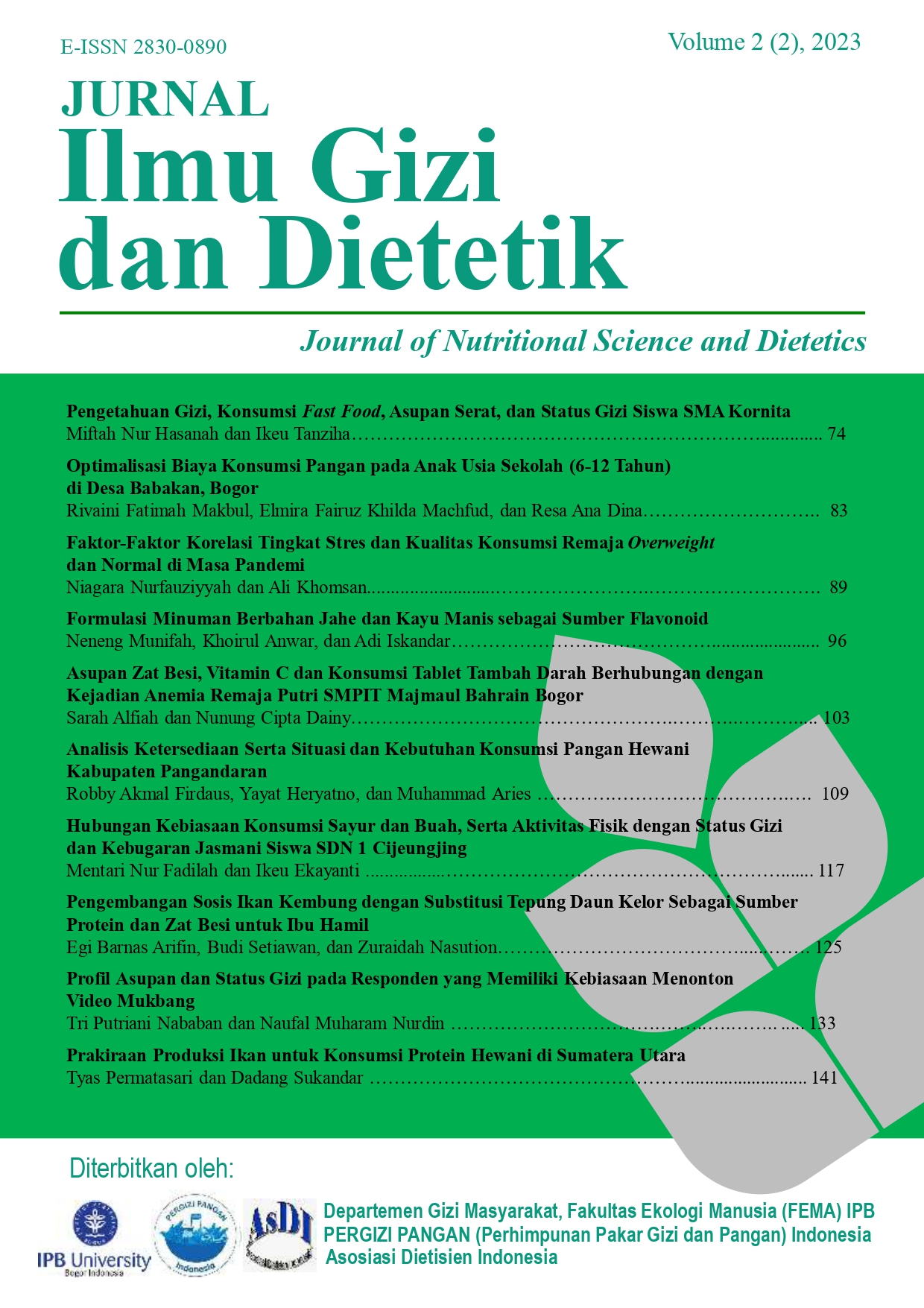Optimalisasi Biaya Konsumsi Pangan pada Anak Usia Sekolah (6-12 Tahun) di Desa Babakan, Bogor Optimizing Food Consumption Costs In School-Age Children (6-12 Years) in Dramaga District, Bogor
Abstract
This study aims to develop a food composition that can meet the nutritional needs of school-age children at minimal cost and still consider the quality of consumption. This research design is a descriptive study. The sample size was 45 households with school-age children in Babakan Village. The results showed that the average school-age child had not met the 90% energy requirement. Food consumption cost minimization using linear programming. The recommendation model developed can increase the energy intake of school-age children to 93.4% of the energy adequacy level, 108.5% of protein adequacy level, 90.4% of fat adequacy level, and 95.3% of the carbohydrate adequacy level. The cost is Rp19,363 per child per day and the Desirable Dietary Pattern score is 90.7. With costs that are approximately equal to actual expenditures and utilizing food sources that are easily obtained around Babakan Village, it turns out that the food consumption of school-age children can be optimized and remain of high quality, marked by an adequate Desirable Dietary Pattern score.

